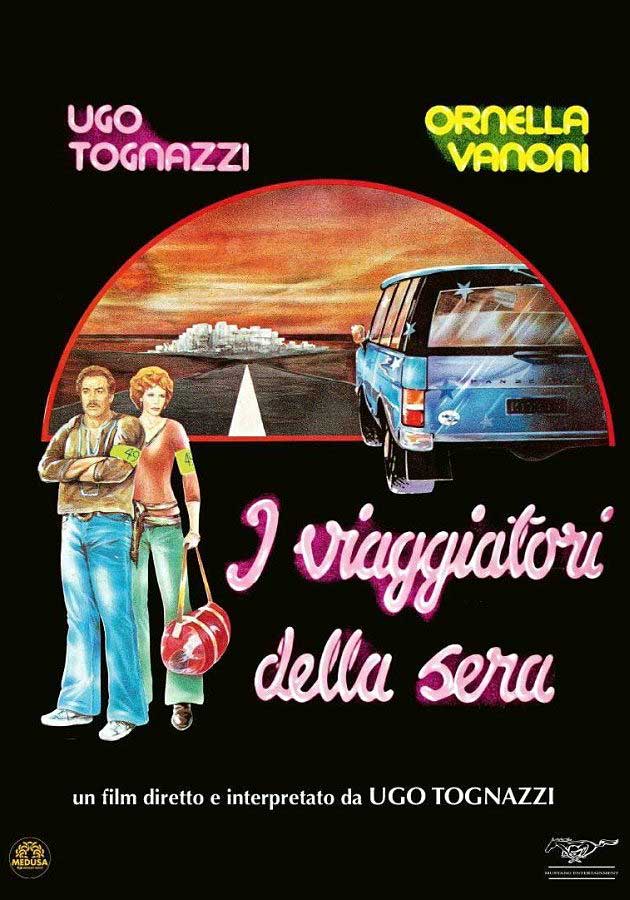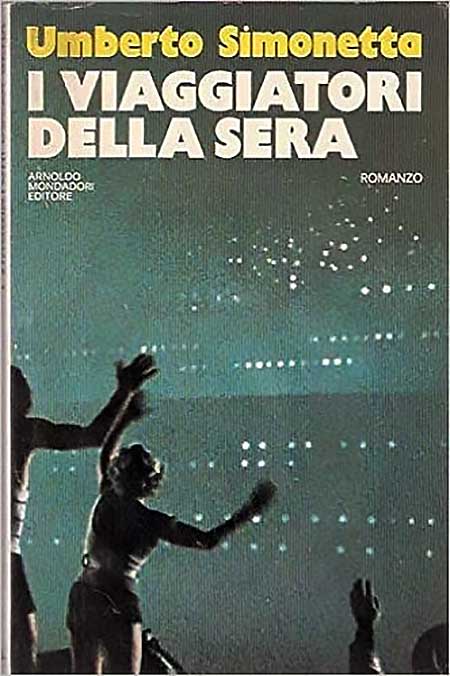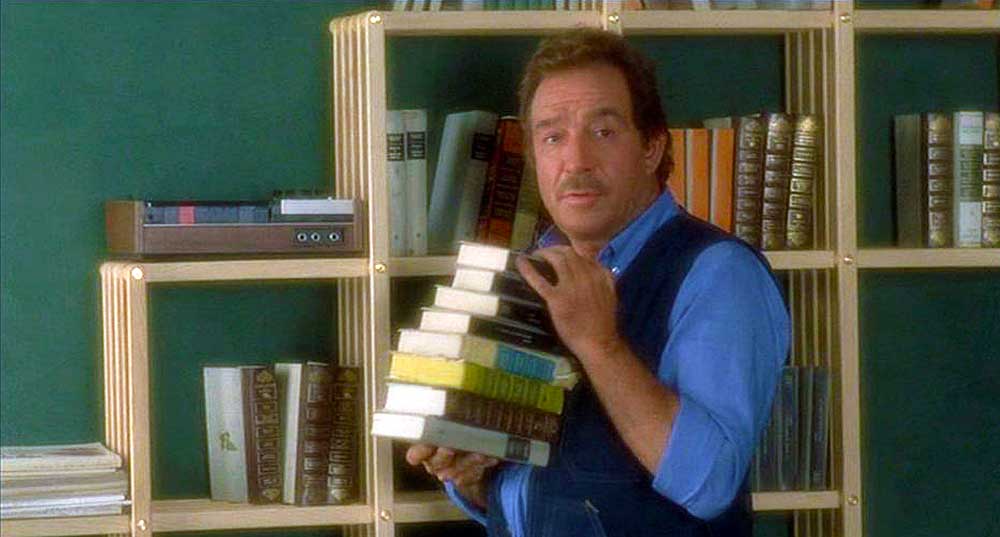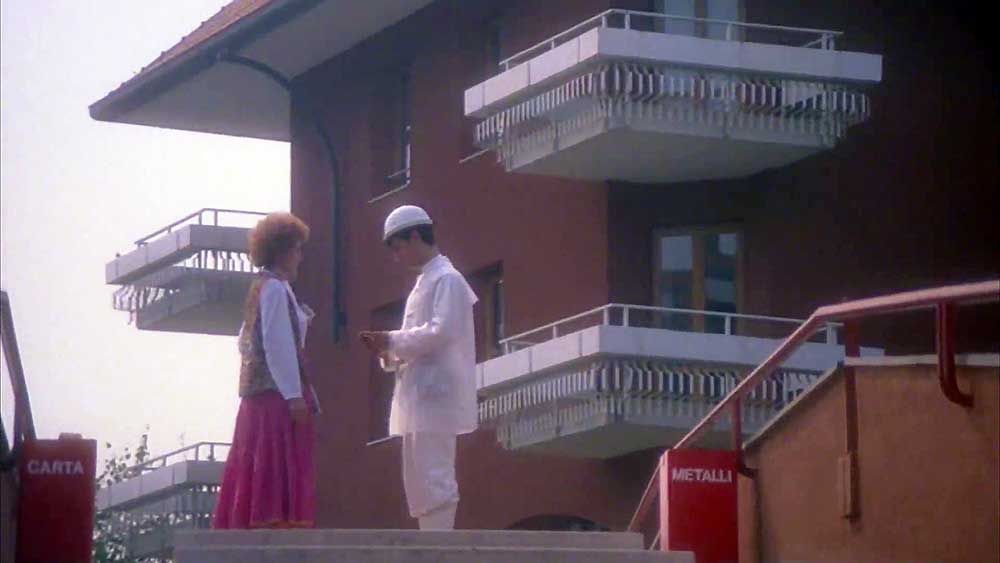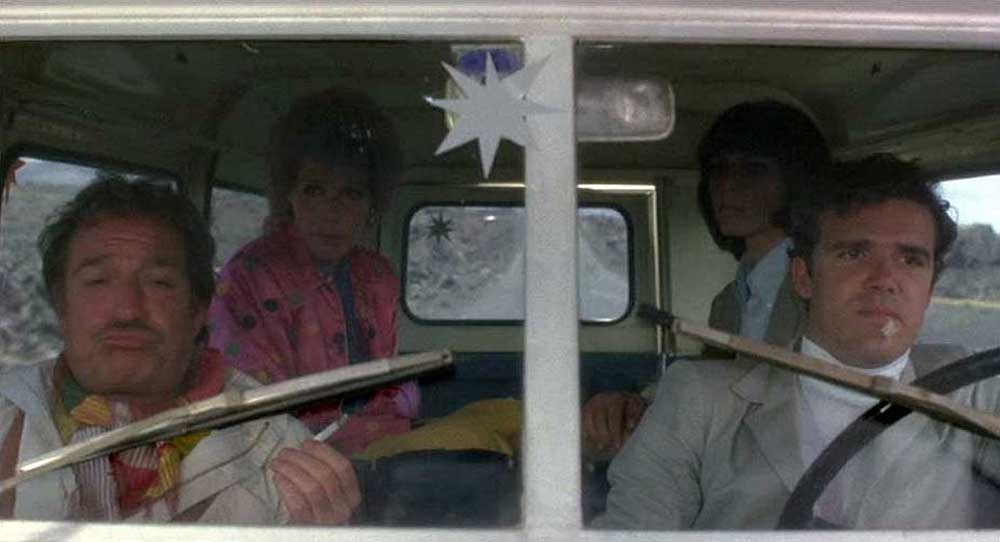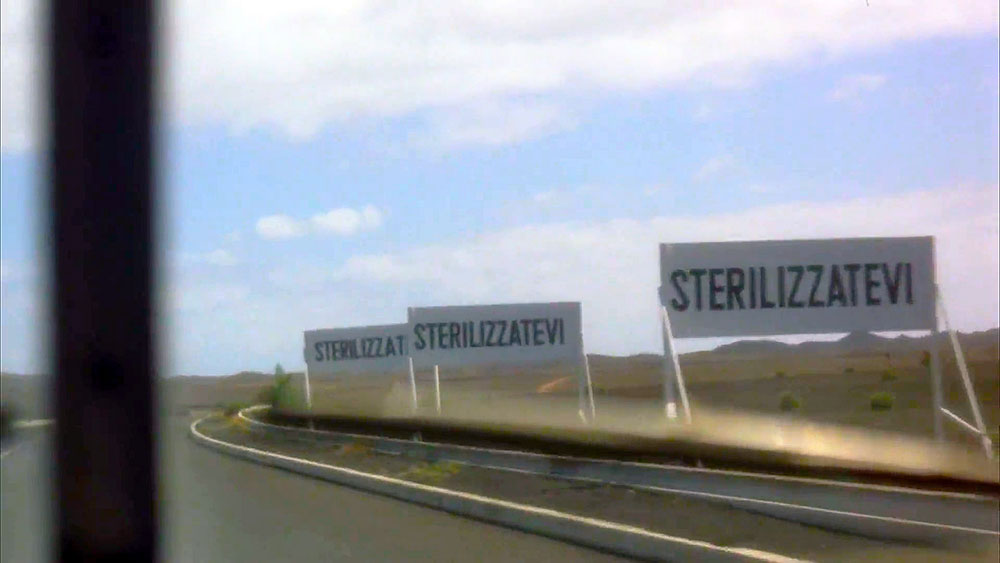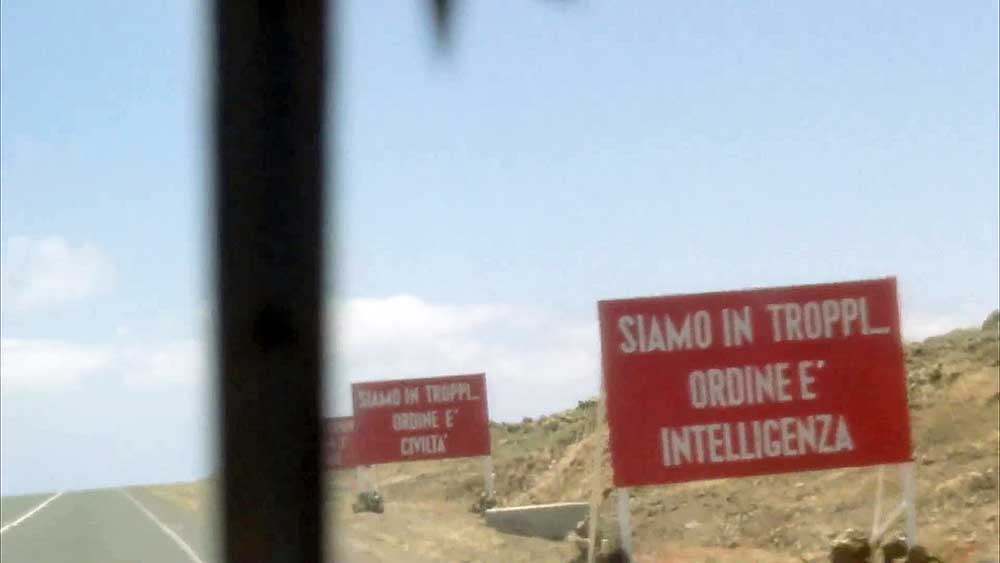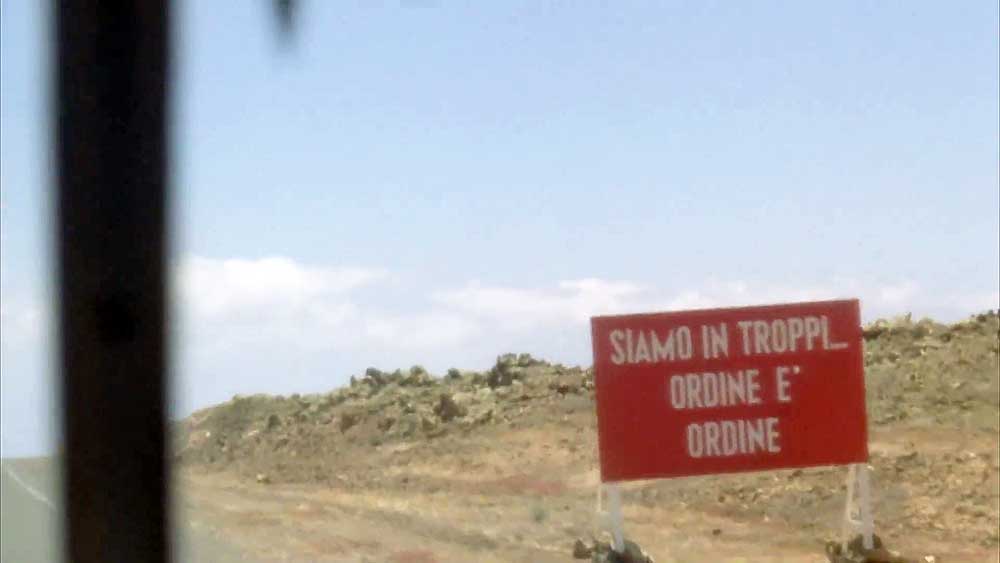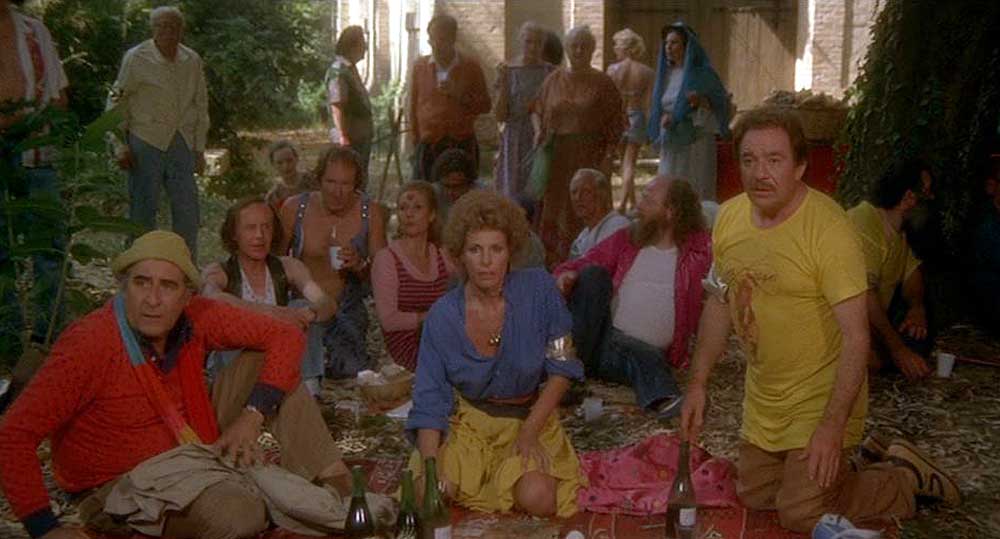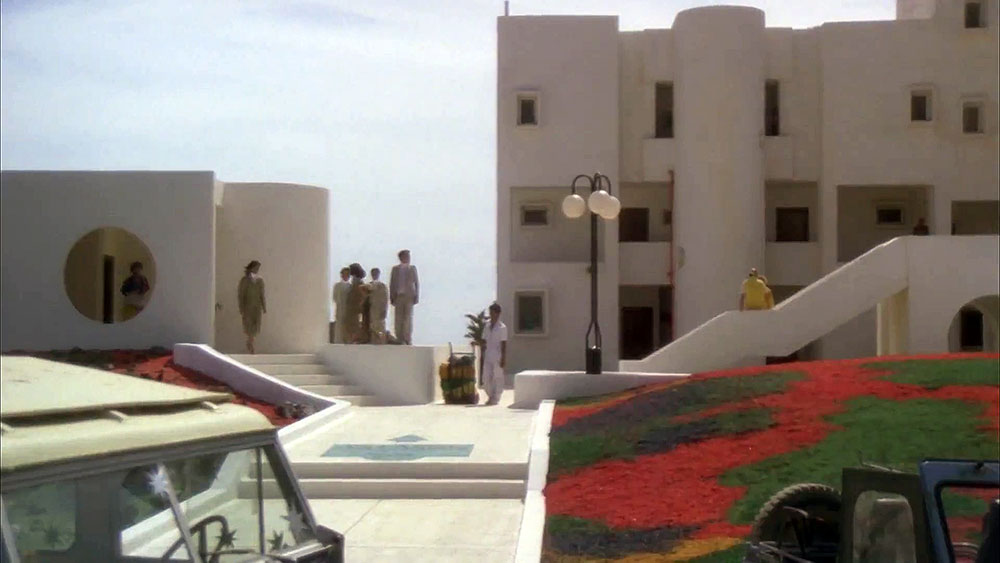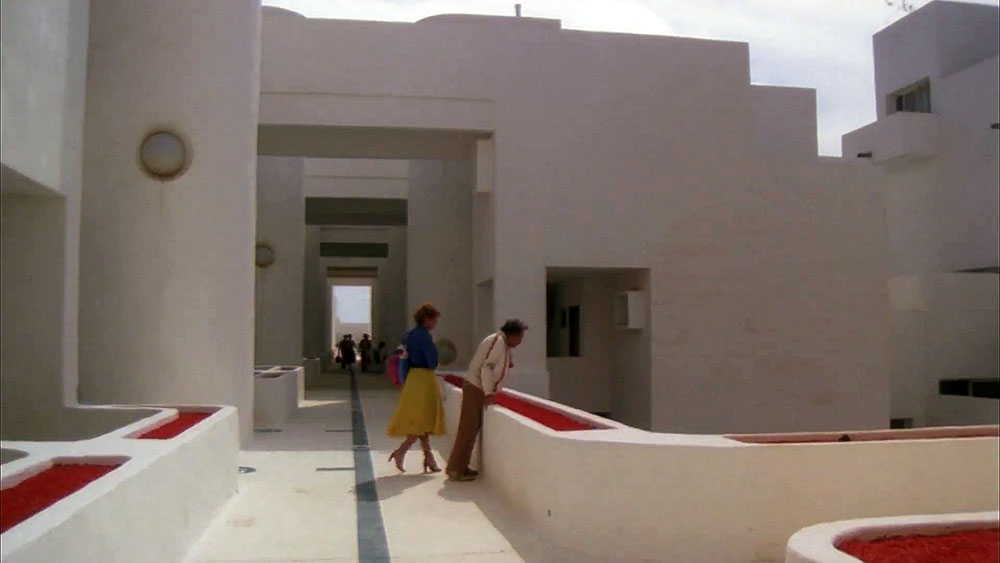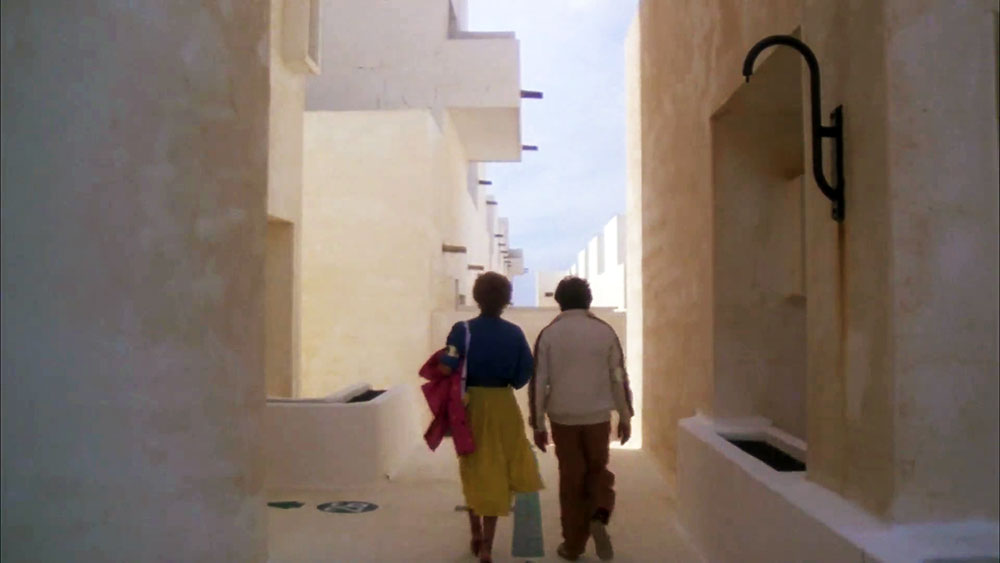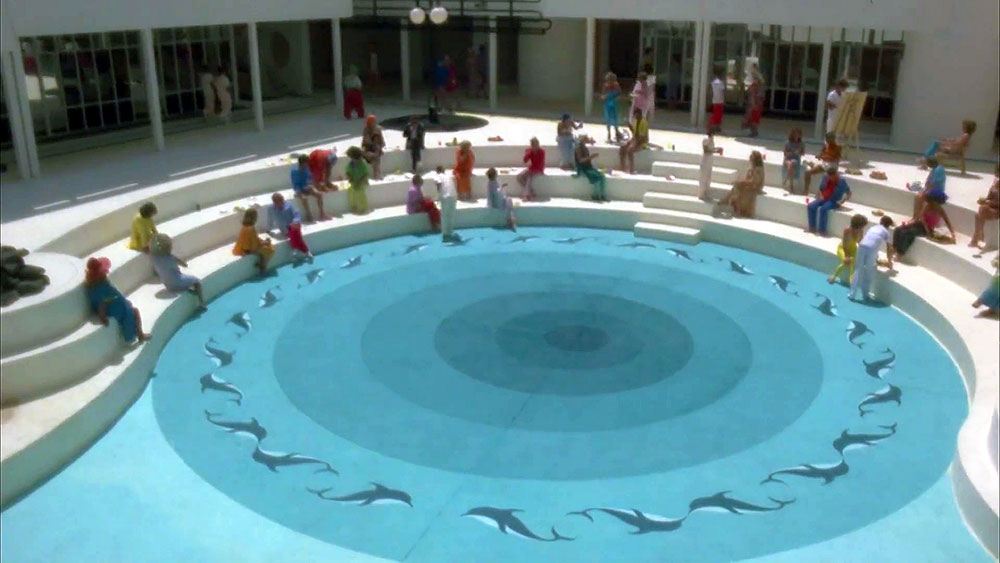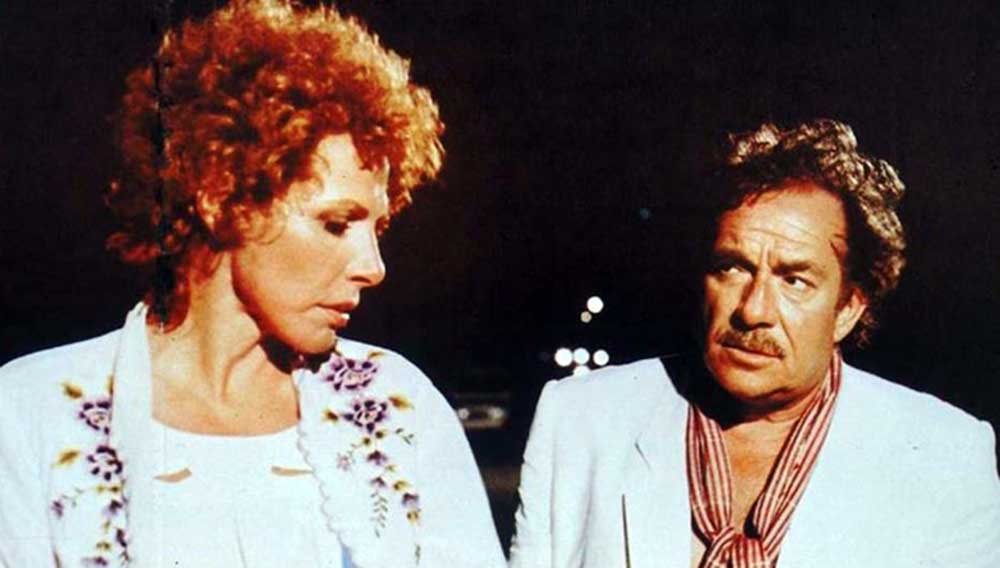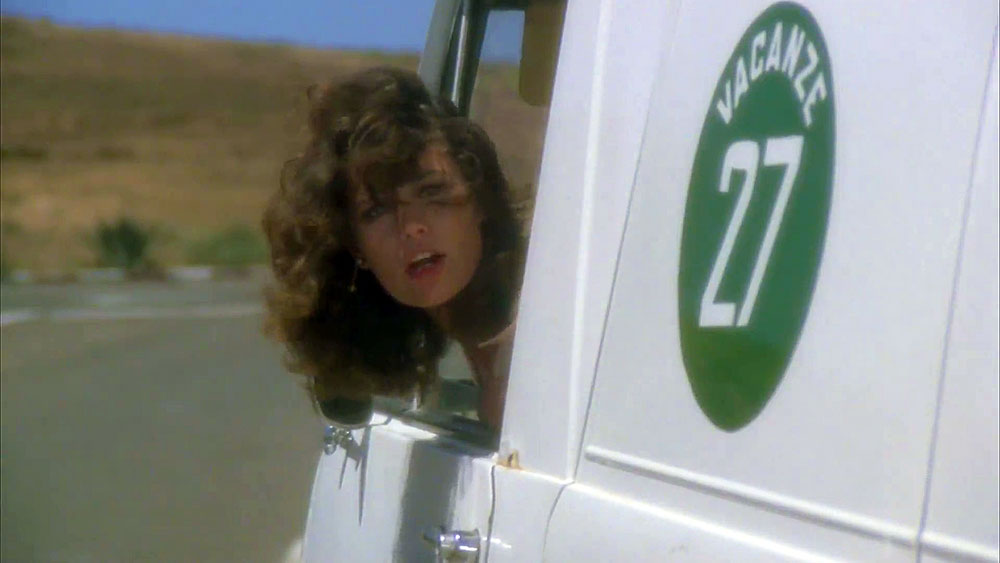”For his farewell as a director, Tognazzi returns to the dark dystopian territories and chooses a story that makes farewell his subject: "The Twilight Travellers" by Umberto Simonetta.
Lorenzo
Article by Daniele Pieraccini
(contains spoilers)
«E se allora essere umani non fosse più l’unico requisito richiesto per avere diritto di vivere?
E se un giorno si ipotizzasse che degli esseri umani potrebbero, in base alle loro prerogative di medici, politici o giudici, decidere se la vita di un altro essere umano è degna o meno di essere vissuta?».
da “La morte moderna”, scritto nel 1978 da Carl-Henning Wijkmark
More than a decade after The Seventh Floor, Ugo Tognazzi returns to amaze with another dystopian work, based on the novel of the same name by Umberto Simonetta.
We are still in the territory of sociological criticism: in the 1967 film, the main theme was the health market, this time the actor and director from Cremona targets the management by the power of environmental, economic and even human resources.
Think how modern Tognazzi’s “visions” were, now that we are penetrating more and more into a “New Normality” of flexible and revocable rights, of permanent emergency, of overturning of the moral sense, of zeroing out any critical sense, of capillary indoctrination.
In the future world described by Simonetta, only one newspaper is published, the vote is asked for 13-year-olds and the power is handled inflexible by young people.
White-clad policemen stand guard as the Public Health Army, while Orwellians speakers continually remind you of rules and regulations.
A law requires (according to a dramatically current formula of “voluntary obligation”) that once citizens have reached the age of 49 they must leave family and society to move to absurd tourist villages, apparently to go on indefinite holidays.
We are in the thematic area of Logan’s Run, an American movie from 1976, directed by Michael Anderson and also inspired by a novel; in fact, there is talk of a “bio-ecologically” balanced, fully planned organization of life and management of the demographic curve implemented through birth control and euthanasia disguised as a ceremony or prize.
“Who knows if there is anyone among you who remembers when we could still all be together…”
Orso Banti, aka Orso Scoppiato (Tognazzi) is a radio DJ at his last broadcast.
For him and his wife of the same age Nicki (a very good Ornella Vanoni) it is time for “retirement” in the holiday village. The radio space of Orso, transgressive and scurrilous, will be occupied by newsletters of public utility, conducted by young bureaucrats, with daily updates of the Grande Contatore (The Big Counter) on the number of inhabitants of the planet.
The young people are gray and amorphous, sober, polite and perfectly tamed, dressed in a formal but anonymous way and live according to strict principles of order. On the contrary, old people are linked to another way of life, more spontaneous, they dress colorful and unkempt and they just want to have fun and fun.
“Nonno, perché dici tutte quelle banalità e sconcezze alla radio?”
While Orso and his wife are packing for the trip of no return, we learn many things about this “new world” from the family conversation between them, the children and the little grandson:
in order to procreate you need specific authorization from the central power; every citizen is equipped with cards to access any type of service; sterilization is constantly and strongly encouraged; at the age of forty-ninth it is mandatory to wear an arm band.
Above all, from the dialogues between family members, the distance of thought that runs between generations and which nullifies any attempt at mutual understanding appears clear.
Their son and daughter, very accomplished and dutiful, consider parents to be hopeless, irritating and irresponsible scoundrels.
For Orso and Nicki, the children are overly framed and inhibited and don’t know what it means to enjoy life. A reversal of roles that appears grotesque to our eyes. Even more grotesque appears little Antonluca, grandson of the two protagonists, totally shaped by propaganda, a small bureaucrat who continually scolds his grandparents using tones and concepts that do not belong to a child.
“Orso, noi siamo la prima generazione che va al villaggio…lo senti loro come ragionano? sono cresciuti con quest’idea e così i loro figli”
The family then leaves to reach village number 27, which Orso and Nicki are destined for. Children and granddaughter accompany them, following up on discussions and conflicts and not hiding too much the desire to quickly “close the file” and go back to their lives. We learn that their sons do not even wish to reach the age of the “vacation”, they are so focused on efficiency that they lead to suicidal self-responsibility.
Along the way, in a barren and arid landscape, the presence of propaganda and eco-health power is constant. Patrols of very young ESP policemen popping up everywhere, creepy billboards lining the deserted highway (“we are too many” “sterilize yourselves” “order is civilization”) and a deserted gas station with the bartender-lawyer serving customers with their backs to them but peering at them through a screen, while drinks and coffee are produced by an impersonal machine.
Even the marijuana that Bear and Nicki smoke is provided by the state.
Before arriving at the destination there is a digression into an oasis of greenery, where all future guests of the village gather for a party with music, drugs and wine, always under constant and pressing surveillance of the young policemen dressed in white. What proceeds in glee as the last commemoration of a happy past ends tragically with the blatant suicide of the two twins who own the estate that hosts the party. They, too condemned to “vacation” and consequently abandon the estate in which they spent their life, prefer immediate death.
The fears already existing in many of the future vacationers resurface, the tone of the story becomes more and more crepuscular.
“Here everyone does it and the authorities say nothing, on the contrary they consider it a high social service”
Arriving at the village, modern and aseptic, an open-air prison in which they can move freely but without going out of bounds, Orso and Nicki learn the rules of the place from loudspeakers and get to know the other guests and also find old acquaintances.
Soon the couple, even if they keep on living together in the same apartment, goes into crisis. Inside the institute everyone betrays everyone, there is a rage of sex that has prevailed over all human relationships; old men and women negotiate sexual services with young attendants cold as automatons, who are satisfied, in exchange, for a sweater or a necklace.
In fact, in the new order sexual promiscuity is encouraged but technicized and disconnected from any vital or affective drive (as Huxley already predicted in The New World).
Guests continually dedicate themselves to it more out of boredom than out of desire, flaunting a frenzy that is only in search of stunning.
“Chiedo l’autorizzazione al disbrigo di una pratica sessuale”
The most awaited and above all feared event is the periodic lottery, in which all guests are obliged to take part. It is a bizarre cross between Mercante in Fiera (a traditional Italian Christmas card game) and Bingo, with strange tarot cards, and the prize is the immediate departure for a cruise that no one dreams of: in fact, the winners have never returned to the village, from this we deduce that in reality they are deleted.
The fact is accepted with resignation by the guests, who continue to enjoy by dedicating themselves to sex, the only “real” activity allowed.
Orso makes friends with Bertani, what some today would call a conspiracy theorist, who favors the rebellious and supportive spirit of the former DJ. While the other guests live suspended between obedience and fatalism, the two are unwilling to accept the fate that others have decided for them and want to prepare an escape.
Meanwhile, marital and emotional ties are loosening, also in anticipation of future, painful separations.
Even Orso, although initially reluctant to cheat on his wife, indulges in a relationship with a young village worker, Ortensia, addressed in his choice by Bertani. In fact, the girl is part of a movement of young people against any deprivation of freedom and helps the elderly who intend to escape.
“L’ignoranza è errore e l’errore è la morte”
To escape, however, Orso and Nicki have to go through the next lottery unscathed; so they consult Simoncini, the longest-lived guest of the village who seems to have found a mathematical system to always lose at the game and therefore never be selected for the cruise.
Unfortunately, despite this effort, Nicki ends up among the winners and is forced to embark. In a harrowing scene on the pier the two, aware that they will never see each other again, greet each other with a last kiss, confessing their love.
Orso, overwhelmed by grief and resigned not to flee anymore and to wait his turn for the cruise, will also die. But in a sensational and unexpected way, to create a diversion that allows Bertani and another guest to escape. It will be Antonluca, the grandson, to kill him for fun or by mistake, in an old abandoned floating zoo, full of now extinct stuffed animals.
Welcome to the new normality
Today we understand why such films have been ignored, crushed by critics, or soon ended up in oblivion, rather than being screened and discussed in schools.
Otherwise, we wouldn’t live now a historical moment in which the majority of people live as guests of the village, obedient and resigned or perhaps victims of the illusion that the cruise called the Great Reset is a promised land rather than a slaughterhouse.
Related works:
Books:
“I viaggiatori della sera” di Umberto Simonetta
“Logan’s Run” by William F. Nolan e George C. Johnson
“Brave New World” by Aldous Huxley
“1984” by George Orwell
“A Generation Removed” by Gary K. Wolf
“Modern Death: The End of Humanity” by Carl-Henning Wijkmark
Movies:
Il Fischio al naso (The Seventh Floor – 1967) by Ugo Tognazzi
Swiss Made 2069 (1969) by F.M. Murer
Logan’s Run (1976) by Michael Anderson
THE BEAUTIFUL SOUNDTRACK BY TOTI SOLER AND XAVIER BATTLES WITH IMAGES FROM THE FILM
“The Twilight Travelers” (IT 1979) by Ugo Tognazzi
Director: Ugo Tognazzi
Story: Umberto Simonetta (novel), Sandro Parenzo
Screenplay: Ugo Tognazzi, Sandro Parenzo
Productor: Franco Committeri
Music: Toti Soler, Xavier Batllés, Santi Arisa
Cast
Ugo Tognazzi: Orso Banti
Ornella Vanoni: Nicki Banti
Corinne Cléry: Ortensia
Roberta Paladini: Anna Maria Banti
Pietro Brambilla: Francesco Banti
José Luis López Vázquez: Simoncini
William Berger: Cochi Fontana
Manuel de Blas: Bertani
Deddi Savagnone: Mila Patrini
Leo Benvenuti: Sandro Zafferi
David Fernández Álvaro: Antonluca, figlio di Anna Maria
Enrico Tricarico: Village director
Sergio Antonica: Nicola
Ricky Tognazzi: gardener
Carmen Russo: girl at the radio station


